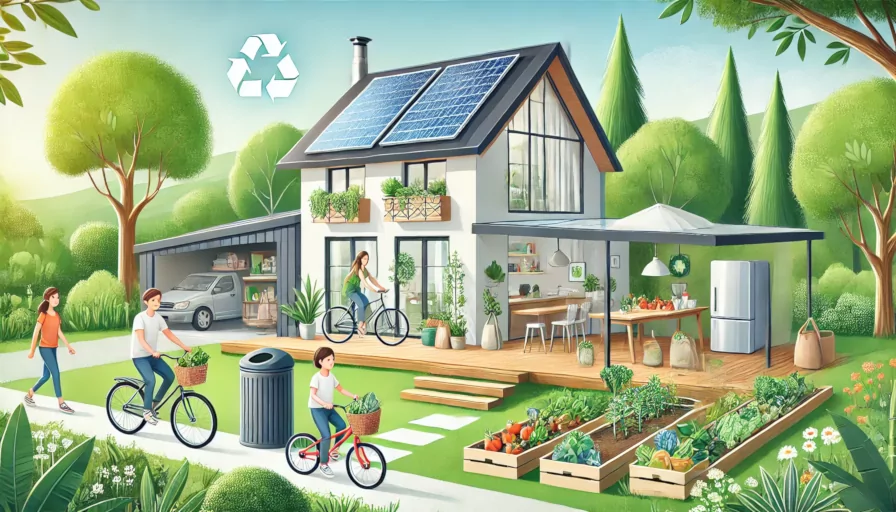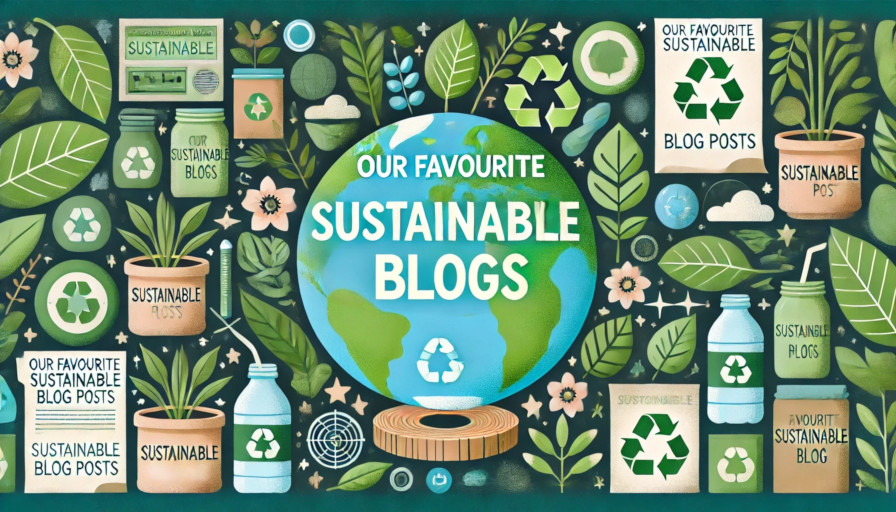The simplest and most reassuring solution is to adopt a mindset of ‘out of sight, out of mind’, which many people instinctively do. The irony is that while consumers might wax lyrical about the importance of adopting eco-friendly alternatives, they may - knowingly or unknowingly - live a lifestyle that sometimes does the opposite. With summer here and some warmer weather to enjoy, it’s a fantastic time to adopt new habits, buy from eco-friendly brands, and recycle more to live an eco-friendly lifestyle. Whether you’re searching for sustainable swimwear for a well-deserved holiday or a vegan pair of trainers for an active trip away, we have an ongoing commitment to support ethical brands with products made from sustainable materials, such as natural dyes, organic cotton, woven hemp, and bamboo. From the home you live in to the hobbies you love, this article shares some tips on how to live more sustainably across all aspects of your day-to-day life.
Living more sustainably
Adopting an eco-friendly lifestyle sounds like a drastic change, but it isn’t when you break it down. It simply boils down to making smarter choices in what we as individuals do, from what we wear, use, and eat, to how we research the products we buy. However, collectively, if enough people make smarter, eco-friendlier consumer choices, the impact could be profound. However, the good news is that with fairly minimal adjustments that don’t compromise anyone’s quality of life, there are easy ways to integrate eco-friendly living across key areas, including fashion, technology, and food. It is easier than ever to find ethical alternatives for nearly every product and activity that we need. So, rather than feeling overwhelmed, it’s rewarding to adopt eco-friendly practices by eating seasonal produce, minimising material waste, and buying from brands invested in eco-ventures.
Sustainable fashion: Rethinking what we wear
The fashion industry is responsible for alarmingly high pollution worldwide, reportedly contributing to 10% of global carbon emissions, according to the United Nations Environment Programme (UNEP). For years, fast-fashion brands have encouraged a culture of overconsumption by producing clothes at minimal costs, which degrade and fall apart quickly. It doesn’t help that consumers with a flair for fashion are being spoon-fed marketing messaging that encourages instinctive buying with no consideration of the product’s source or origins. These, as recent findings have indicated, are largely unethical and environmentally destructive. In contrast thankfully, ‘slow fashion’ is a sustainable flip-side model that encourages us to appreciate all the items we purchase by understanding the manufacturing process, from raw materials to finished products. By doing so, it encourages more thoughtful and responsible fashion choices, urging consumers to adjust shopping habits to buy fewer new items of poor quality and turning to quality pieces that stand the test of time. To follow the principles of slow fashion, consider the following tips:
- Source eco-friendly products: Buy from brands that only promote sustainable and vegan accessories and whole clothing ranges that are ethically-sourced and manufactured from natural and eco-friendly materials.
- Buy less, buy better: Commit to buying fewer, longer-lasting items each season. We all need clothing upgrades from time to time, but it’s always going to be worthwhile prioritising quality over quantity. Remove that impulse to buy new and set a clothing budget for a handful of quality items.
- Shop vintage and second-hand: Beautiful pre-owned pieces are ripe for the taking on sites like Vinted, Depop, or in a realm of high-street or online charity shops. Buying second-hand clothes removes any environmental guilt associated with buying new, and waste will be exponentially reduced.
- Research sustainable brands: Research carefully to find clothing brands that align with your values around factors like carbon offsetting, traditional farming techniques, quality suppliers, or the use of many renewable materials, such as wool, bamboo and organic cotton.
- Learn how to care for clothes: Little things like air drying, washing with cold water, using eco-friendly detergents, and learning how to mend items can prolong the lifespan of your clothes.
Eco-friendly technology
Not only is their considerable energy used in the manufacturing and production of tech, but there is also the pervasive issue of e-waste (electronic waste) from prematurely replacing old tech with new models. Much like fashion, today’s tech-centric society involves consumers being forced into a lifestyle where personal phones, laptops, tablets, televisions, and others, need to be upgraded every few years. This has led to a huge increase in e-waste, which emits harmful chemicals when they end up in landfill sites and are not recycled properly. We can counter this by being more conscientious with our everyday tech habits:
- Decluttering your home from old phones, tablets, or cameras by selling them to like-minded consumers via a sustainable used camera retailer, or donating them to charity.
- Refusing to bow to peer pressure and using our phones, laptops, tablets, cameras, and other devices for as long as possible, to maximise their lifespans.
- When buying new devices, select eco-conscious brands that champion longevity, repairability and responsible materials.
- Going paperless as much as you can. Mass paper production is emissions-heavy and destructive to forests, so be extremely judicious about printing paper documents.
Eco-conscious eating: Food and drink
Food production and distribution have a huge impact on the environment, with animal agriculture alone responsible for 18% of global greenhouse gas emissions. While for some, opting for a full food lifestyle change is out of the question, small and incremental diet tweaks can shift these numbers for the better. Consider these small adjustments:
- Eat more plants: Vegetables, fruits, beans, lentils, and whole grains (as well as food made from these base materials) have tiny carbon footprints compared to meat and dairy. Experiment with vegetarian or vegan options for eco-friendly alternatives to staple meals that you love.
- Moderate meat intake: Consider meat a garnish rather than the main component of meals. Prioritise ethically raised, local, high-welfare meat when you do eat it. Reducing meat intake even fractionally can provide excellent boosts to health and the environment.
- Reduce food waste: Shop only for what you need, eat leftovers, and compost food scraps. High percentages of food are wasted globally, and bringing this number down even marginally would cut emissions drastically.
- Drink sustainably: Carry reusable water bottles and containers. When dining out or grabbing a takeaway, choose places using recyclable or compostable packaging.
Embracing sustainability does not necessitate a huge overhaul of your lifestyle and habits. You can still find joy and meaning through your passions and activities while adopting eco-friendly replacements. In many cases, eco-friendly clothes, products, and tech solutions are longer-lasting. Making these small sustainable switches across all aspects of life will, over time, lead to a more enriching personal lifestyle without harming the planet.














 Be the first to know when Europe's top ethical brands are on sale, sign up to our newsletter here
Be the first to know when Europe's top ethical brands are on sale, sign up to our newsletter here